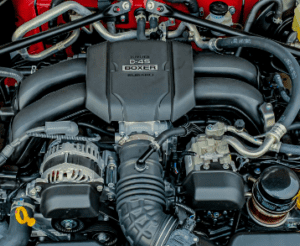Toyota engine failure causes and effects

Engine failure in Toyota vehicles can result from various causes, each leading to different effects. Here’s a breakdown:
Common Causes of Toyota Engine Failure:
- Lack of Maintenance:
- Cause: Neglecting regular oil changes, failing to replace filters, and not addressing minor issues can lead to engine wear.
- Effect: Increased friction, overheating, and eventual engine seizure. This can cause permanent damage to internal components like the pistons, bearings, and crankshaft.
- Overheating:
- Cause: Failure in the cooling system, such as a malfunctioning radiator, water pump, or thermostat, can cause the engine to overheat.
- Effect: Overheating can warp the cylinder head, cause head gasket failure, or even lead to a complete engine meltdown.
- Oil Starvation:
- Cause: Oil leaks, clogged oil passages, or using the wrong type of oil can lead to insufficient lubrication.
- Effect: Without proper lubrication, engine components can grind against each other, causing excessive wear and eventual engine failure.
- Timing Belt/Chain Failure:
- Cause: If the timing belt or chain breaks or slips, the engine’s valves and pistons can collide.
- Effect: This can cause severe damage to the valves, pistons, and possibly the cylinder head, leading to complete engine failure.
- Fuel System Issues:
- Cause: A faulty fuel pump, clogged fuel injectors, or a dirty fuel filter can cause improper fuel delivery.
- Effect: The engine may run lean, causing overheating, knocking, or even detonation, which can lead to catastrophic engine failure.
- Electrical Problems:
- Cause: Malfunctions in the ignition system, such as a bad spark plug, faulty ignition coil, or problems with the engine control unit (ECU).
- Effect: This can cause misfires, poor performance, or complete engine shutdown if the ECU fails to manage the engine properly.
- Contaminated Fuel:
- Cause: Using low-quality or contaminated fuel can introduce debris or water into the engine.
- Effect: This can damage the fuel injectors, lead to poor combustion, and potentially ruin the engine.
- Defective Parts or Manufacturing Errors:
- Cause: Sometimes, engine failures result from defective parts or manufacturing issues.
- Effect: Such failures might lead to recalls or warranty replacements, but if unnoticed, they can cause significant engine damage.
Effects of Engine Failure:
- Immediate Shutdown: The engine may suddenly stop running, leaving the vehicle immobile.
- Loss of Power: Gradual loss of power, leading to poor acceleration and inability to maintain speed.
- Costly Repairs: Engine failure often requires expensive repairs, including rebuilding or replacing the engine.
- Reduced Vehicle Value: A history of engine failure can significantly reduce the resale value of the vehicle.
- Safety Risks: Engine failure while driving can lead to loss of control, increasing the risk of accidents.
Preventive maintenance and addressing issues early are key to avoiding engine failure in Toyota vehicles. Regular check-ups, using the right fluids, and following the manufacturer’s maintenance schedule can greatly reduce the risk of these issues.
Toyota Engine Recall
Toyota has issued several engine recalls over the years, typically to address manufacturing defects or safety concerns. These recalls often involve specific engine components that could fail, leading to potential safety hazards or engine damage. Here are some notable examples:
Recent Notable Toyota Engine Recalls:
- 2019-2020: Recall for Fuel Pump Issues
- Affected Models: Various Toyota models, including Camry, Corolla, Highlander, Tacoma, and Tundra, among others.
- Cause: A faulty fuel pump that could fail, leading to engine stalling.
- Effect: If the fuel pump fails, the engine could stall while driving, increasing the risk of a crash.
- Remedy: Toyota replaced the fuel pumps in affected vehicles with improved parts.
- 2010-2014: Excessive Oil Consumption
- Affected Models: Toyota Camry, Corolla, Matrix, and others with 2AZ-FE engines.
- Cause: A defect in the engine’s piston rings, causing excessive oil consumption.
- Effect: Engines could run low on oil, leading to engine damage or failure.
- Remedy: Toyota extended the warranty on affected engines and offered repairs, including replacing the piston rings and other related components.
- 2019: Recall for Engine Control Unit (ECU) Issues
- Affected Models: 2018-2019 Toyota Camry with 4-cylinder engines.
- Cause: A software issue in the ECU that could cause the engine to shut down unexpectedly.
- Effect: The engine could stall while driving, increasing the risk of an accident.
- Remedy: Toyota reprogrammed the ECU software in affected vehicles to prevent the issue.
- 2020: Recall for Engine Block Casting Defects
- Affected Models: 2020 Toyota Yaris, Toyota RAV4, and Lexus vehicles with 2.0L or 2.5L engines.
- Cause: Improper casting of the engine block, leading to potential cracks.
- Effect: Cracks in the engine block could lead to coolant or oil leaks, resulting in engine overheating and potential engine failure.
- Remedy: Toyota inspected and, if necessary, replaced the entire engine assembly in affected vehicles.
- 2021: Recall for Engine Valve Springs
- Affected Models: Certain Toyota and Lexus models with 2.5L or 3.5L V6 engines.
- Cause: A defect in the engine’s valve springs, which could cause the springs to break.
- Effect: If a valve spring breaks, it could cause the engine to stall or fail.
- Remedy: Toyota replaced the valve springs in affected engines.
How to Check for Recalls:
If you own a Toyota vehicle and want to check if it’s affected by any recalls, you can:
- Visit the official Toyota website and use their recall lookup tool by entering your Vehicle Identification Number (VIN).
- Contact a Toyota dealership directly.
- Check with the National Highway Traffic Safety Administration (NHTSA) website, where you can also enter your VIN to see any open recalls.
It’s important to address recalls promptly to ensure the safety and longevity of your vehicle. Toyota generally covers the cost of recall-related repairs, so getting them addressed as soon as possible is advisable.


